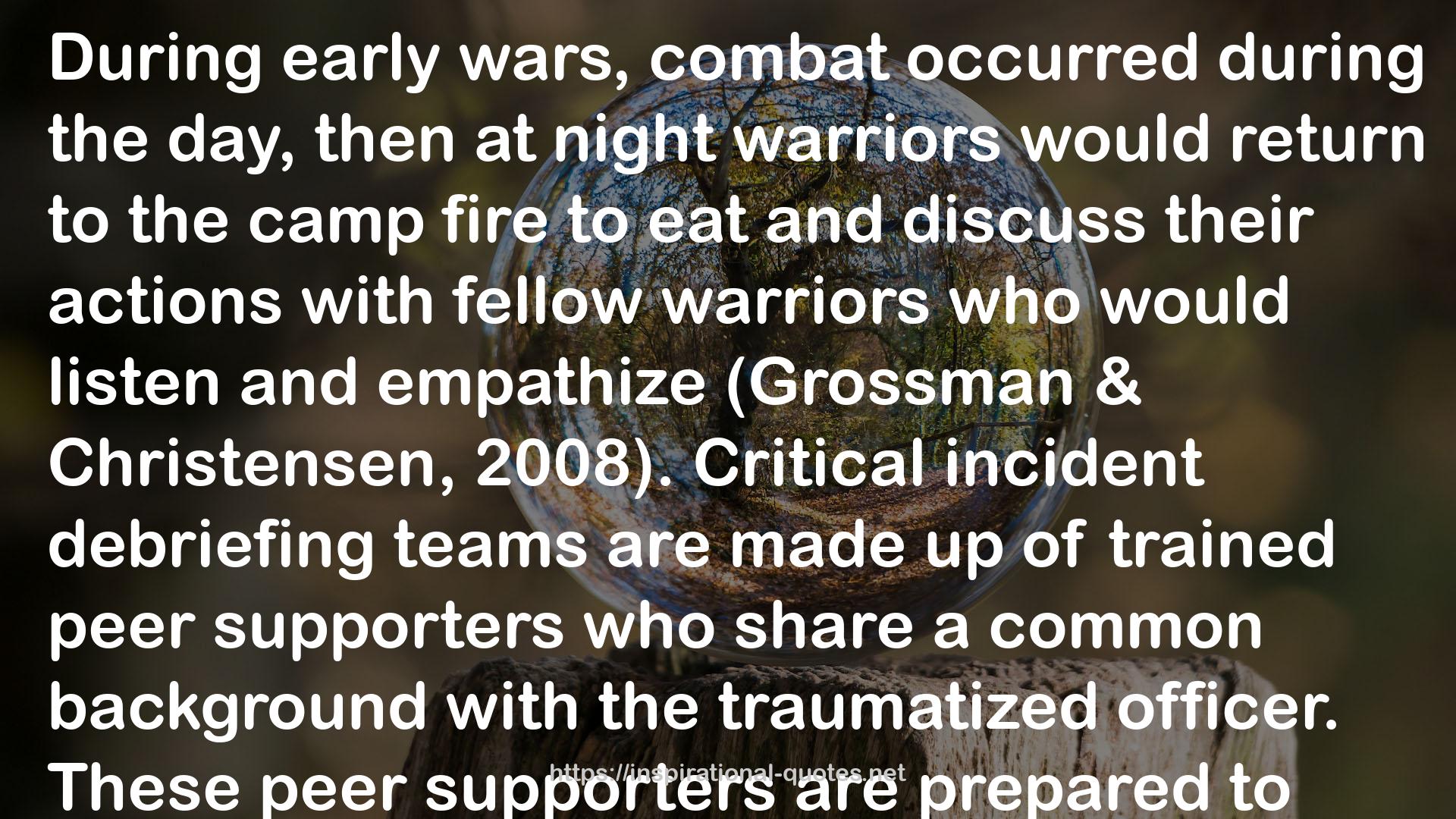" During early wars, combat occurred during the day, then at night warriors would return to the camp fire to eat and discuss their actions with fellow warriors who would listen and empathize (Grossman & Christensen, 2008). Critical incident debriefing teams are made up of trained peer supporters who share a common background with the traumatized officer. These peer supporters are prepared to move an individual or group of people through a step-by-step process allowing the participants to tell their story and make connections with other’s stories. These debriefings are organized discussions that take the participants mentally back to the time of the traumatic event and allow them to talk their way through their physical and emotional responses. The benefits of a critical incident debriefing are those who attend find a connection between their perspectives, can fill in gaps in memory, and can support each other. The goal of a debriefing is to allow the participants to move incrementally through the critical incident and release strong emotions that may be suppressed (Kates, 1999). "
― Karen Rodwill Solomon , The Price They Pay
